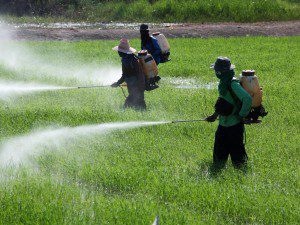Contributing Writer for Wake Up World
Globally, one person dies by suicide roughly every 40 seconds. Around the world, over one million people commit suicide each year — an increase of 60 percent over the last four and a half decades. Incredibly, farmers have one of the highest rates of self-inflicted death.
Newsweek reports that suicide for farmers in the U.S. is about twice the average of the general population. However, this isn’t just a problem in America; it’s an international crisis.
“India has had more than 270,000 farmer suicides since 1995. In France, a farmer dies by suicide every two days. In China, farmers are killing themselves to protest the government’s seizing of their land for urbanization. In Ireland, the number of suicides jumped following an unusually wet winter in 2012 that resulted in trouble growing hay for animal feed. In the U.K., the farmer suicide rate went up by 10 times during the outbreak of foot-and-mouth disease in 2001, when the government required farmers to slaughter their animals. And in Australia, the rate is at an all-time high following two years of drought.”
Although factors such as poor yield, financial stress, erratic weather and animal disease certainly contribute to a high suicide rate in farmers, researchers are beginning to suspect another cause: exposure to pesticides.
20-year study establishes a connection between depression and conventional farming chemicals
Researchers at the National Institute of Health completed a historic study earlier this fall which confirmed that seven pesticides — some of which are widely used — contribute to clinical depression in farmers. Over the last two decades, the team interviewed almost 84,000 farmers and their spouses. The findings were startling. Dr. Freya Kamel, lead researcher for the study, said that two specific types of pesticide were responsible for the massive uptick in depression — organochlorine insecticides and fumigants. Each increases the risk of depression by an astounding 90 and 80 percent, respectively. One of the more common varieties is called malathion and is used by approximately 67 percent of the farmers surveyed. It also just happens to be banned in Europe.
This isn’t the only study that links pesticides to depression. According to Newsweek:
“A group of researchers published studies on the neurological effects of pesticide exposure in 2002 and 2008. Lorrann Stallones, one of those researchers and a psychology professor at Colorado State University, says she and her colleagues found that farmers who had significant contact with pesticides developed physical symptoms like fatigue, numbness, headaches and blurred vision, as well as psychological symptoms like anxiety, irritability, difficulty concentrating and depression. Those maladies are known to be caused by pesticides interfering with an enzyme that breaks down the neurotransmitter that affects mood and stress responses.”
In the end, both studies beg the question: If farmers who utilize conventional pesticides as part of their profession are experiencing the damaging consequences of the chemicals, what is the effect on the general public who ingest the substances through their food?
Article sources:
- http://www.suicide.org
- http://ehp.niehs.nih.gov
- http://www.newsweek.com
- http://npic.orst.edu
- http://www.ncbi.nlm.nih.gov
- http://modernfarmer.com
- http://science.naturalnews.com
Previous articles by Carolanne:
- Dry Skin Brushing Can Strengthen Immunity, Spark Detoxification and Reverse Aging
- Cannabis Dissolves Cancerous Tumor in Young Infant, Deemed ‘Miracle Baby’ by Physician
- Report Finds Cancer Deaths Have Doubled in Argentina’s GMO Growing Regions
- Is Mold Making You Sick?
- Why Everyone Should be Eating More Hempseed
- Slash your Organic Food Bill by Almost 90 Percent with This One Simple Method
- Autistic Boy with Higher IQ Than Einstein Discovers Gift After Removal from State-Run Therapy
- Enhance Spiritual, Mental and Physical Well-being with a Pineal Gland Detox
- Enterprising Community Aims for Total Food Self-Sufficiency with Free Edible Landscapes
- DIY $2 Self-Watering Garden Bed – Grow Produce Easily, Even in the Toughest Conditions
About the author:
I’m Carolanne — a writer, chef, traveler and enthusiastic advocate for sustainability, organics and joyful living. It’s good to have you here. If you would like to learn more, connect with me at Thrive-Living.net or visit Twitter.com/Thrive_Living.Please note: this article by Carolanne Wright first appeared on Natural News.

If you've ever found value in our articles, we'd greatly appreciate your support by purchasing Mindful Meditation Techniques for Kids - A Practical Guide for Adults to Empower Kids with the Gift of Inner Peace and Resilience for Life.
In the spirit of mindfulness, we encourage you to choose the paperback version. Delve into its pages away from screen glare and notifications, allowing yourself to fully immerse in the transformative practices within. The physical book enriches the learning process and serves as a tangible commitment to mindfulness, easily shared among family and friends.
Over the past few years, Wake Up World has faced significant online censorship, impacting our financial ability to stay online. Instead of soliciting donations, we're exploring win-win solutions with our readers to remain financially viable. Moving into book publishing, we hope to secure ongoing funds to continue our mission. With over 8,500 articles published in the past 13 years, we are committed to keeping our content free and accessible to everyone, without resorting to a paywall.








